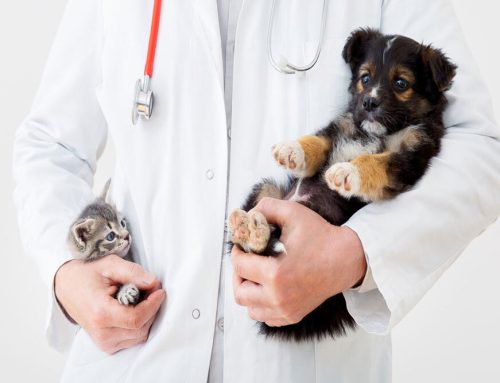Pets can develop health problems at any age, but they can’t tell us when they aren’t feeling like themselves. Pet owners have a responsibility to monitor their furry pals for changes in their health or behavior that could indicate a brewing problem. Although some changes may seem minor, any altered habit should prompt a visit with our Providence Vet team. Here are the most common health changes in dogs and cats that you shouldn’t ignore.
1: Weight fluctuations in pets
Your pet’s weight can fluctuate because of changes to their nutritional requirements, or because of genetic metabolic tendencies. However, weight changes can also signal more serious health concerns, including a long list of possibilities such as thyroid problems, diabetes, gastrointestinal disorders, and kidney disease.
2: Eating habit changes in pets
Your pet’s appetite can increase or decrease because of changes in critical hormone levels, such as thyroid hormones or cortisol. Appetite may also decrease in response to physical or emotional stress, stomach upset, elevated blood toxin levels, infections, or other general illnesses.
3: Skin or coat changes in pets
Most skin changes signal parasitic or inflammatory skin diseases, which can be uncomfortable and lead to serious secondary infections. Some skin changes can also signal underlying health problems, such as nutritional deficiencies, auto-immune disorders, hormonal imbalances, or infections. Lumps or bumps can also be cause for concern, especially those that pop up suddenly, grow larger quickly, or become ulcerated or infected.
4: Excessive thirst or urination in pets
Increased water intake or frequent urination is a hallmark sign of kidney disease, diabetes, and Cushing’s disease, but can also occur secondary to cancer, head trauma, urinary tract infections, or other significant health issues. Never limit your pet’s water intake if they are drinking or urinating frequently, as this could lead to life-threatening dehydration.
5: Digestive upsets in pets
Most pets experience occasional vomiting or diarrhea if they eat something they shouldn’t or they pick up a minor stomach bug. However, digestive issues that won’t seem to go away or that keep coming back require investigation into the underlying cause, which could include parasites, inflammatory disorders, pancreatic enzyme deficiencies, bacterial imbalances, infections, or liver problems.
6: Coughing or sneezing in pets
Coughing and sneezing, which are classic upper respiratory infection signs, are common in dogs and cats. Dogs tend to develop coughing with infections, while cats more often develop sneezing and nasal discharge. In some cases, respiratory changes are caused by something more serious, such as heart disease or a systemic fungal infection.
7: Behavior changes in pets

Decreased activity or tolerance for exercise can indicate a pet doesn’t generally feel well, with no associated specific disease. This vague change, or any other behavioral changes, such as anxiety, social withdrawal, irritability, house soiling, or sleep problems, often stem from pain, cognitive disorders, or underlying illness. Always bring behavior changes to our team’s attention before you attempt to resolve them with a trainer or other behavior professional.
Why pet health monitoring matters
Pets don’t talk, but they can communicate how they’re feeling or how their body is functioning through their actions and behaviors. Stay vigilant and address abnormalities in your pet’s health or behavior promptly to ensure they receive the necessary veterinary care to resolve the issue and maintain quality of life.
Diagnosing and treating health problems in their earliest stages can improve your pet’s response to therapy and potentially add months or years to their life. In addition to closely monitoring your pet’s behavior, wellness screening blood and urine tests can identify early problems with internal organs—potentially addressing them before clinically noticeable signs appear.
Regular veterinary check-ups with our Providence Vet team can help to identify early disease signs that you may not notice at home. Contact us to schedule your pet’s routine visit or if you have any concerns about your pet’s health, behavior, or overall wellness.






Leave A Comment